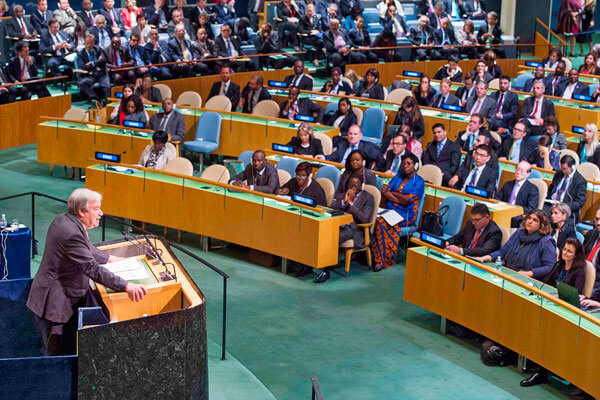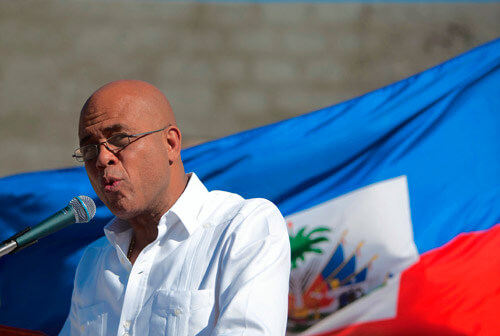Caribbean Community (CARICOM) diplomats have joined the United Nations General Assembly in appointing the former Prime Minister of Portugal, António Guterres, as the next United Nations Secretary-General.
Guterres, 67, who was appointed by acclamation on Thursday, succeeds Ban Ki-moon when he steps down on Dec. 31.
Guterres was Prime Minister of Portugal from 1995 to 2002, and the UN High Commissioner for Refugees from June 2005 to December 2015.
He will become the world’s top diplomat on Jan. 1, 2017, and hold that post for the next five years, the UN said.
Adopting a consensus resolution put forward by its President, Peter Thomson, the UN said the General Assembly acted on the recommendation on the UN Security Council, which on Oct. 6 forwarded Guterres’ name to the 193-member body as its nominee for UN Secretary-General for a five-year period, ending Dec. 31, 2021.
Thanking the General Assembly for appointing him as the next Secretary-General, Guterres said he was grateful to the Member States for their trust in him as well as for the transparent and open selection process they undertook.
“I believe this process means that the true winner today is the credibility of the UN,” he said. “And it also made very clear to me that, as Secretary-General, having been chosen by all Member States, I must be at the service of them all equally and with no agenda but the one enshrined in the UN Charter.”
He also underlined that alleviating the suffering of the vulnerable people, in particular the refugees and those in conflict zones, and gender equality would remain key priorities for him during his tenure, the UN said.
It said Secretary-General-designate Guterres also reiterated his belief in the values of peace, justice, human dignity, tolerance and solidarity, as well as his belief that diversity is a “tremendous asset” and not a threat.
Guterres also applauded the work of the current Secretary-General Ban Ki-moon, saying he would try his “utmost to honor” Ban’s legacy.
Ten years to the day after his own appointment as Secretary-General, Ban said: “Secretary-General-elect Guterres is well known to all of us in the hall. But he is perhaps best known where it counts most: on the frontlines of armed conflict and humanitarian suffering,” referring to his time as head of the UN refugee agency.
Noting that he has long valued his advice, and long admired his spirit of service, Ban declared: “He is a wonderful choice to steer this Organization as we build on the progress of the past decade, while addressing the insecurity and uncertainties of today’s world.”
Frederick Musiiwa Makamure Shava, president of the UN Economic and Social Council (ECOSOC), also congratulated Guterres on his election, saying that the secretary-general-designate “is a strong humanitarian advocate and a successful leader,” and that he looks forward to working with him.
The Assembly’s resolution also welcomed the historic process Member States set in motion late last year: the selection of a new United Nations Secretary-General, traditionally decided behind closed-doors by a few powerful countries, has for the first time in history, involved public discussions with each candidate campaigning for the world’s top diplomatic post.
The UN said these so-called “informal briefings” between the candidates, UN Member States and civil society representatives kicked off on April 12, when the first three candidates presented their “vision statements” and answered questions on how they would promote sustainable development, improve efforts to create peace, protect human rights, and deal with huge humanitarian catastrophes should they be selected to lead the organization.
Ban also praised UN Member States for the selection process and emphasized that it “opened the [selection] process to the world.”
He further noted that the new steps taken this year established a new benchmark of openness and engagement.
The UN said the selection process included, for the first time in the history of the Organization, public hearings with the General Assembly where candidates presented their vision and responded to the questions fielded by the Member States. These informal hearings were also televised and webcast.
The process started off with a joint call from the presidents of the General Assembly and the Security Council formally soliciting candidates and from the outset, acknowledged the importance of geographic and gender balance in senior posts, the UN said.
For his part, Assembly President Thomson highlighted that the selection process underscored the principles of transparency and inclusivity.
“It was a process that specifically sought out candidates who embody a firm commitment to the purposes and principles of the [UN] Charter; who exemplify the highest standards of efficiency, competence, and integrity; and who have proven leadership and managerial abilities, extensive experience in international relations, and strong diplomatic, communication and multilingual skills,” said Thomson in his remarks.



















